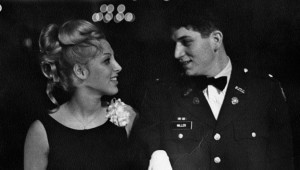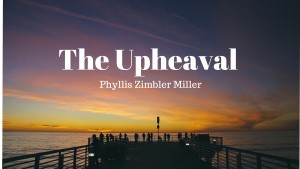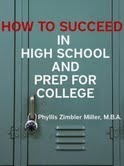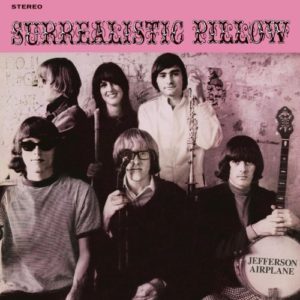Phyllis Zimbler Miller's Blog: Phyllis Zimbler Miller Author, page 9
September 12, 2017
PBS Launches Vietnam War Series on Sept. 17, 2017

Phyllis Zimbler and Mitchell Miller at the Coronation Ball at Michigan State University on Saturday, November 18, 1967, sponsored by the Cadet Officers Club and the Arnold Air Society.
John Jurgensen in his Sept. 9, 2017, Wall Street Journal article “Through Veterans’ Stories, Ken Burns Explores ‘The Vietnam War’” begins:
Ken Burns doesn’t like the expression “Thank you for your service.” Though it has become a default way to pay respect to military veterans, too often the phrase functions as a brushoff, the filmmaker says. “It suggests no further conversation is necessary.”
The scale of “The Vietnam War”—a 10-part, 18-hour series that took 10 years to produce—reflects the complicated nature of the conflict. It claimed the lives of more than 58,000 U.S. service members, scarred veterans returning to a hostile home front, and continues to divide Americans who lived through it. The series debuts Sept. 17 on PBS.
An added component of the PBS series is the opportunity for people to share how they experienced the events of the Vietnam era. You can go to www.pbs.org/kenburns/the-vietnam-war/vietnam-stories/ to submit your photos and stories.
I submitted the photo and photo caption on this post along with this short description:
As much as I would like to watch this series on the Vietnam War, I’m not sure that I can emotionally. Even thinking about fighting in Vietnam brings me to tears. My husband (Army ROTC at MSU) told me on our third date in college that he was going to Vietnam, and that specter hung over me during our dating, marriage, and his two years on active duty.
I accompanied him when he went on active duty in May of 1970 right after the Kent State shootings. Those first nine weeks at Ft. Knox, Kentucky, had a profound impact on me. I subsequently wrote a novel inspired by that experience (MRS. LIEUTENANT can be read for free via Kindle Unlimited) from the wives’ POV about their husbands going to Vietnam:
www.amazon.com/Mrs-Lieutenant-Womens-Friendship-Novel-ebook/dp/B0019V2HFK
To read more about the series, click on www.pbs.org/show/vietnam-war/ to go to the PBS website.
PTSD awareness efforts
The self-publishing of MRS. LIEUTENANT led to my involvement with various online military support issues, especially PTSD (for both combat trauma and non-combat trauma). I continue to work on getting a production company including Amazon and Netflix interested in my two PTSD projects — one a reality show of innovative PTSD treatments and one a scripted drama series inspired by the Los Angeles County Veterans Court.
See www.SolomonsJustice.com for information on these two proposed projects and PTSD.
© 2017 Miller Mosaic LLC
Phyllis Zimbler Miller (@ZimblerMiller) has an M.B.A. from The Wharton School and is the author of fiction and nonfiction books/ebooks. Phyllis is available by skype for book group discussions and may be reached at pzmiller@gmail.com
Her Kindle fiction ebooks may be read for free with a Kindle Unlimited monthly subscription — see www.amazon.com/author/phylliszimblermiller — and her Kindle nonfiction ebooks may also be read for free with a Kindle Unlimited monthly subscription — see www.amazon.com/author/phylliszmiller
August 30, 2017
Basics of Planning for College: Interview
Thanks to Jordan Schanda of Scholar Prep for interviewing me regarding the basics of planning for college. As I discussed in the video, the best time to start planning is the summer before entering 9th grade. This way several potential pain points may be avoided.
For more information check out on Amazon my book HOW TO SUCCEED IN HIGH SCHOOL AND PREP FOR COLLEGE.
© 2017 Miller Mosaic LLC
Phyllis Zimbler Miller (@ZimblerMiller) has an M.B.A. from The Wharton School and is the author of fiction and nonfiction books/ebooks. Phyllis is available by skype for book group discussions and may be reached at pzmiller@gmail.com
Her Kindle fiction ebooks may be read for free with a Kindle Unlimited monthly subscription — see www.amazon.com/author/phylliszimblermiller — and her Kindle nonfiction ebooks may also be read for free with a Kindle Unlimited monthly subscription — see www.amazon.com/author/phylliszmiller
August 20, 2017
Thoughts on Diversity After the Google Employee Anti-Diversity Memo

While diversity in real life and in fiction is a topic on which I often blog, the firing of the Google software engineer in connection with his anti-diversity memo has strongly affected me because it is yet another instance of the never-ending battle for women’s equality.
(If you haven’t been following this news story, you might want to see the information in the post that I wrote for the Enplug.com blog in my role as Content Marketing Strategist there: “Workplace Diversity After the Google Memo — The Positive and the Negative.”)
In the Enplug post I quoted from the August 8, 2017, Fortune commentary “Read YouTube CEO Susan Wojcicki’s Response to the Controversial Google Anti-Diversity Memo,” which begins:
Yesterday, after reading the news, my daughter asked me a question. “Mom, is it true that there are biological reasons why there are fewer women in tech and leadership?”
That question, whether it’s been asked outright, whispered quietly, or simply lingered in the back of someone’s mind, has weighed heavily on me throughout my career in technology. Though I’ve been lucky to work at a company where I’ve received a lot of support—from leaders like Larry Page, Sergey Brin, Eric Schmidt, and Jonathan Rosenberg to mentors like Bill Campbell—my experience in the tech industry has shown me just how pervasive that question is.
Time and again, I’ve faced the slights that come with that question. I’ve had my abilities and commitment to my job questioned. I’ve been left out of key industry events and social gatherings. I’ve had meetings with external leaders where they primarily addressed the more junior male colleagues. I’ve had my comments frequently interrupted and my ideas ignored until they were rephrased by men. No matter how often this all happened, it still hurt.
This commentary brought back my own painful memories of discrimination in the workplace, including at a time when such discrimination was considered acceptable.
And today women (and minorities) are still underrepresented in many arenas, such as action movie directors in Hollywood and, of course, top leadership roles and the tech industry.
For an example of working to right this diversity imbalance, read Shanee Edwards’ August 14, 2017, Playa Vista Direct article “Building a Pipeline of Diversity” about the program Film2Future.com for racially diverse under-served high school students in Los Angeles to have a pipeline into Hollywood careers.
My own personal antidote to this ongoing discrimination is to write strong female (and minority) fictional characters whenever possible. (I talk about this in my post “Why Is Diversity in Fiction So Important?”)
And whenever it is appropriate, I include in my posts information about the Geena Davis Institute for Gender in Media, whose motto is “If she can see it, she can be it.”
The institute distributes powerful videos on gender equality such as this one:
Women working after WWII
Although I am not an historian, I’d like to share something I saw many years ago in the now closed Norman Rockwell museum in Philadelphia. One of his Saturday Evening Post covers had this article headline (I am reciting from memory and, yes, the use of the word “men” compared to the word “girls” is correct even though “coming home” may have been “returning home”): Now that the men are coming home can the girls keep their jobs?
The answer turned out to be no.
Since that first taste of equality as women took over men’s jobs during WWII, it has been a long road of clawing back up to equality — with a great deal of climbing still to go.
And, of course, when I talk about diversity in the workplace, I am not only talking about more women in leadership and tech roles, I am also talking about more minorities and more physically challenged individuals.
It is human nature to want to be included in community. Look around yourself and see if you can help welcome diversity in your communities.
P.S. Given the other ongoing diversity news at the time of writing this post (such as in Charlottesville, Virginia), I want to mention my women’s friendship novel MRS. LIEUTENANT, which was a 2008 Amazon Breakthrough Novel Award semifinalist. The novel, set in 1970 at Ft. Knox, Kentucky, concerns racial prejudice including Northern and Southern attitudes.

MRS. LIEUTENANT is available on Amazon in paperback and Kindle (and the Kindle version is free via Kindle Unlimited) — click here to check it out on Amazon.
© 2017 Miller Mosaic LLC
Phyllis Zimbler Miller (@ZimblerMiller) has an M.B.A. from The Wharton School and is the author of fiction and nonfiction books/ebooks. Phyllis is available by skype for book group discussions and may be reached at pzmiller@gmail.com
Her Kindle fiction ebooks may be read for free with a Kindle Unlimited monthly subscription — see www.amazon.com/author/phylliszimblermiller — and her Kindle nonfiction ebooks may also be read for free with a Kindle Unlimited monthly subscription — see www.amazon.com/author/phylliszmiller
July 26, 2017
Kudos to The Wall Street Journal for Promoting Coding for Girls and Boys
The above video features The Wall Street Journal’s Geoffrey A. Fowler talking with two young children working on the new Lego Boost (turns regular Legos into robots). The video accompanies his July 26, 2017 “Personal Technology” print article “Young Coders Bring Lego Bricks to Life.”
As a long-time feminist, what is most exciting to me about the video and the article is that both a girl and a boy are featured. Finally we’re beginning to see more visual depictions of females (of all ages) involved in tech occupations.
Click here to read my post “Using Lego Models to Promote STEM Careers for Women.”
Why is this depiction so important?
In the book NEUROMARKETING by Patrick Renvoise and Christophe Morin the authors explain that the primitive part of our brain responds better to visual images than words. This is because visual understanding preceded language understanding by some hugely unimaginable time period.
And apparently this is why a photo captures our attention in ways that words cannot. Thus seeing a female talk about coding is more impactful than reading about a female coding. And role models to encourage female interest in coding skills are very important.
The Geena Davis Institute on Gender in Media (“If she can see it, she can be it”) promotes portraying females in equality roles. Watch this video from her organization:
And click here to read my post “Geena Davis Offers Easy Steps to Make Hollywood Less Sexist.”
Again, kudos to The Wall Street Journal!
© 2017 Miller Mosaic LLC
Phyllis Zimbler Miller (@ZimblerMiller) has an M.B.A. from The Wharton School and is the author of fiction and nonfiction books/ebooks. Phyllis is available by skype for book group discussions and may be reached at pzmiller@gmail.com
Her Kindle fiction ebooks may be read for free with a Kindle Unlimited monthly subscription — see www.amazon.com/author/phylliszimblermiller — and her Kindle nonfiction ebooks may also be read for free with a Kindle Unlimited monthly subscription — see www.amazon.com/author/phylliszmiller
July 9, 2017
Georgette Heyer and Strong Female Protagonists

As I start on “Stopover in Wagreth” — the third segment of my fantasy novel ROAD TO ZANZICA, I am contemplating once again the portrayal of fictional female protagonists.
Perhaps this is because I have just re-read one of my favorite Georgette Heyer historical romance novels — DEVIL’S CUB — first published in 1932. (Georgette Heyer — 1902-1974 — was an English fiction author.)
While in most of Heyer’s historical romances only the men carry swords, in another such novel of hers that I recently re-read — THE MASQUERADERS (first published in 1928) — in a terrific plot twist a woman disguised as a man carries a sword.
According to Wikipedia:
Heyer essentially established the historical romance genre and its subgenre Regency romance [see *Wikipedia explanation of this subgenre at the end of this post]. Her Regencies were inspired by Jane Austen, but unlike Austen, who wrote about and for the times in which she lived, Heyer was forced to include copious information about the period so that her readers would understand the setting. To ensure accuracy, Heyer collected reference works and kept detailed notes on all aspects of Regency life.
While Heyer’s historical romance plots are entertaining, what I find most interesting is the depiction of the historical periods themselves. In fact, in order to better understand her historical novels, I have just purchased the book THE ENGLISH ARISTOCRACY by J. Robinson. After years of not being able to understand which British aristocratic rank is which and which is higher than the other, I have decided to educate myself on this conceivably arcane topic.
For example, I have just learned from THE ENGLISH ARISTOCRACY book:
Members of the peerage are normally addressed by one of five titles which, in descending order, are: duke, marquess, earl, viscount, and baron. Peers rank above baronets who, in turn, with a few exceptions, rank about knights.
(In case you think that this is all there is to know, this is only the tip of the iceberg of a very complicated structure.) And in reaction to this complicated titled aristocratic structure, all the aristos in ROAD TO ZANZICA are lords and ladies — no other aristo titles.
While the women in Heyer’s historical romances may not carry swords, they are strong female protagonists who stand up for what they believe is right and what they want. Heyer’s stories influenced my creation of Leeze am Holden in ROAD TO ZANZICA as an updated Heyer-type heroine — one who carries and uses her own sword.
I have read all of Heyer’s historical romance and historical fiction books, although I have read only a couple of her detective novels even though I’m a fan of English detective novels. I find this last category not nearly as interesting as her other books, and Wikipedia supplied the possible reason for this:
Her husband often provided basic outlines for the plots of her thrillers, leaving Heyer to develop character relationships and dialogue so as to bring the story to life.
And recently I’ve been contemplating Heyer’s male heros, considering similarities and differences among her books. Here again Wikipedia offers very interesting commentary:
Heyer specialised in two types of romantic male leads, which she called Mark I and Mark II. Mark I, with overtones of Mr Rochester [in Charlotte Bronte’s JANE EYRE], was (in her words) “rude, overbearing, and often a bounder.” Mark II by contrast was debonair, sophisticated, and often a style-icon. Similarly, her heroines (reflecting Austen’s division between lively and gentle) fell into two broad groups: the tall and dashing, mannish type, and the quiet bullied type.
When a Mark I hero meets a Mark I heroine, as in BATH TANGLE or FARO’S DAUGHTER, high drama ensues; while an interesting twist on the underlying paradigm is provided by THE GRAND SOPHY, where the Mark I hero considers himself a Mark II and has to be challenged for his true nature to emerge.
For ROAD TO ZANZICA I’ve created two main male characters on the side of good and two main male characters on the side of evil. All four of these are men with whom Leeze am Holden must interact.
You can read the first two segments of ROAD TO ZANZICA (“Road to Zanzica” and “Sojourn in Zanzica”) for free on Wattpad at http://budurl.com/RZintro
Or click here to read the first segment as a Kindle ebook from Amazon for 99 cents (or free via a Kindle Unlimited subscription)
And click here to read the blog post “Halston Heritage Attire Inspiration for Fantasy Adventure Character Garb” about the inspiration for what Leeze am Holden wears when dressed in male garb.
*According to Wikipedia:
The Regency in Great Britain was a period when King George III was deemed unfit to rule and his son ruled as his proxy as Prince Regent. On the death of George III in 1820, the Prince Regent became George IV. The term Regency (or Regency era) can refer to various stretches of time; some are longer than the decade of the formal Regency which lasted from 1811–1820. The period 1795 to 1837, which includes the latter part of the reign of George III and the reigns of his sons George IV and William IV, is often regarded as the Regency era, characterised by distinctive trends in British architecture, literature, fashions, politics, and culture. The Regency era ended in 1837 when Queen Victoria succeeded William IV.
© 2017 Miller Mosaic LLC
Phyllis Zimbler Miller (@ZimblerMiller) has an M.B.A. from The Wharton School and is the author of fiction and nonfiction books/ebooks. Phyllis is available by skype for book group discussions and may be reached at pzmiller@gmail.com
Her Kindle fiction ebooks may be read for free with a Kindle Unlimited monthly subscription — see www.amazon.com/author/phylliszimblermiller — and her Kindle nonfiction ebooks may also be read for free with a Kindle Unlimited monthly subscription — see www.amazon.com/author/phylliszmiller
June 18, 2017
Amazon Buys Whole Foods and My Sci Fi Scenario Moves Closer to Reality

Interpretation of the news of Amazon’s purchase of Whole Foods resulted in several articles in The Wall Street Journal print edition of June 17-18, 2017. As a frequent customer of both retail companies, I read these articles with much interest, especially as I have been predicting for years that Amazon’s goal is to rule the world. The last paragraph of the front-page analysis “Tech Companies Spread Their Tentacles” by Christopher Mims had a telling punchline (quoted below) that reminded me of how close to reality my sci fi novel THE MOTHER SIEGE — starting in 2049 — and the prequel story THE UPHEAVAL — starting in 2029 — are becoming.
Here’s the prescient paragraph — boldface is mine:
Imagine a future in which Amazon, which already employs north of 340,000 people world-wide, is America’s biggest employer. Imagine we’re all spending money at what’s essentially the company store, and when we get home we’re streaming Amazon’s media. The latest update from the Amazon News Network features a smiling Jeff Bezos, president of the newly formed North American Union. I’m joking, of course—but only a little.
Below is the first chapter of THE UPHEAVAL in which a single corporation in an instant takes over all the U.S. land mass west of the Mississippi River. When I first wrote this supposed sci fi story, it seemed somewhat far-fetched. Then I found an article that described the existing technology that would enable my scenario. And now the news of Amazon’s latest acquisition makes my sci fi scenario even more plausible:
CHAPTER 1 OF THE UPHEAVAL — DAY 1 — SUNDAY:
2029 West of the Mississippi River
Natalie Klein stood examining her 16th birthday party outfit in a full-length mirror when the soft beep of the personal comm unit on her left wrist preceded the holograph projection of her mother’s face.
“Are you dressed?” the holograph of her mother said.
“Yes, and I’m ready to celebrate!” Natalie spoke to her comm unit.
“Your dad is sorry he had to be in New York today. He said to record everything on the Videobook and he’ll watch the party later.”
“Hope our music doesn’t blast him out of his hotel room.”
Her mother’s holograph face laughed.
When Natalie entered the kitchen minutes later, her mother handed her a small box.
“My Twitterverse earpiece!” Natalie said. “How did you get it already?”
Her mother gestured to her own comm unit and spoke to it. “Natalie’s birth certificate.”
The requested birth certificate beamed out from the comm unit.
“I convinced a bureaucrat it would be lovely to surprise you on your 16th birthday,” her mother said. “That way you don’t have to go get it yourself.”
Natalie plugged the earpiece into her ear, then wrapped her arms around her mother.
Thirty minutes later Natalie smiled as several teen boys and girls danced to the music broadcasted from the Videobook screen on the living room wall. At the top of the screen a holograph banner proclaimed HAPPY SWEET SIXTEEN and in window in the corner of the screen showed the in-progress recording of the party.
As Natalie danced with her classmate Mark Schwartz, she tapped her ear with the Twitterpiece. He tapped his own ear to show agreement.
At that moment her mother appeared from the kitchen holding a large cake with lit candles on it. The music from the Videobook switched to the “Happy Birthday” song.
As her friends sang “Happy birthday to Natalie,” all lights and electronic gadgets unexpectedly snapped off, leaving the candles as the only light source.
***
William Colker smiled at the man on his left – Arnold Meister sat at the head of a marble conference table around which ranged several men and women. William knew that, at the age of 75, Arnold had realistic expectations of how much longer he could as CEO control the reins of Global Corp. Wiliam, a year away from his 30th birthday, would sooner or later get to rule this empire.
“You know the end game,” Arnold said to him.
William smiled again and swept his hand over the table, where several holographs projected different real-time scenes. Then he turned to the Videobook on the wall where the face of an Army general appeared.
“I can now report,” the general said, “that the majority of military troops stationed west of the Mississippi are on board for the leadership change.”
“And the holdouts?” Arnold said.
“They have been ‘taken care of.'”
William watched Arnold wave his hand; the Videbook screen turned dark and the holograph scenes projected on the table faded away. Arnold nodded at the people seated around him.
“Thank you for your part in this transition,” Arnold said.
He waved his hand again and the Videobook screen flickered back on, displaying a blank screen, to which Arnold spoke.
“Begin recording broadcast message now.”
***
In the living room Natalie and her friends stood frozen. Then the lights and the Videobook screen came back on, showing the face of an older man.
“I am Arnold Meister of Global Corp and I am announcing that an Upheaval has just taken place. From this moment the continental land mass of the U.S. west of the Mississippi River is under the protection of the Provisional Government, which I am leading.”
Natalie saw the cake plate slip from her mother’s fingers, the candles still burning. Natalie and Mark rushed over to stomp on the candles as they hit the hardwood floor.
“All communication within the land mass will continue as before but there will be no communication into or out of the Provisional Government’s land mass,” the man said. “There will also be no air flights or train, movicle, or bus routes into or out of the land mass. This is for your own protection.”
The Videobook screen in the living room blacked out again although the lights now stayed on.
Natalie watched her guests run out of the house, the cake still smashed on the floor and the gifts still piled on an end table. Mark remained standing with her as her mother spoke into her comm unit.
“Larry, are you there? Larry, please answer.”
No response.
Natalie knew Mark’s mother was an Army officer stationed at a nearby base.
“Mark, comm your mother,” Natalie said. “See if your unit works locally.”
“She may be on duty,” he said.
“Please try.”
Mark spoke into his comm unit. “Mom, are you there?”
“Yes, Mark,” came from the holograph of his mother. “Are you okay?”
Natalie sank onto the couch next to her mother. “What is going on?”
***
Mark had reached Major Diane Schwartz just as she left the Army parade grounds, where all military personnel had been assembled for a loudspeaker announcement that the government of the United States had been replaced by the Provisional Government and that all military personnel were now bound to support the Provisional Government.
Major Schwartz had caught the eye of several other officers she trusted, motioning to them with two fingers then one finger that they were to assemble in her BOQ at 2100 hours.
Now 14 male and female officers, all dressed in civvies as was she, slipped into her room. They stood around her as she nodded.
“I cannot agree to our orders to support the Provisional Government. I will inform the general tonight of this. And I expect to be immediately relieved of duty and imprisoned.”
She held up her hand before anyone could interrupt. “Each of you must make up your own mind what to do.”
She turned to 2nd Lt. Jeremy Davis, the youngest officer. “But Lt. Davis, I’m ordering you to submit to the new orders. You haven’t even been on active duty 30 days – there is no need for you to risk your life because of my decision.”
The young lieutenant looked her in the eyes. “I refuse to obey your direct order as well as the direct order to support the Provisional Government. What you do, I will do.”
***
In his Global living quarters William stood facing the bed, the woman already lying there with the sheets pulled up to cover her breasts. He kept his eyes on her while he unbuttoned his shirt.
“Do you have protection?” the woman said.
What an annoyance – he hated this part.
“When I’m in charge I’ll get rid of this irksome necessity,” he said.
“How are you planning to do that?”
He grinned at her as he dropped his pants.
***
Read more chapters of sci fi story THE UPHEAVAL for free on Wattpad at http://budurl.com/Upheaval and check out THE MOTHER SIEGE for free on Wattpad at http://budurl.com/MSonWattpad
And if you’re really into sci fi, you can read my pilot TV sci fi script of THE UPHEAVAL on Amazon Studios at https://studios.amazon.com/projects/108599 and my feature film screenplay (the first of a planned trilogy) of THE MOTHER SIEGE on Amazon Studios at https://studios.amazon.com/projects/71264 (Yes, I realize I’ve put these scripts onto the site of AMAZON!)
© 2017 Miller Mosaic LLC
Phyllis Zimbler Miller (@ZimblerMiller) has an M.B.A. from The Wharton School and is the author of fiction and nonfiction books/ebooks. Phyllis is available by skype for book group discussions and may be reached at pzmiller@gmail.com
Her Kindle fiction ebooks may be read for free with a Kindle Unlimited monthly subscription — see www.amazon.com/author/phylliszimblermiller — and her Kindle nonfiction ebooks may also be read for free with a Kindle Unlimited monthly subscription — see www.amazon.com/author/phylliszmiller
June 5, 2017
Harvard Rescinds Admissions to Students Re Offensive Social Media

The June 5, 2017, Wall Street Journal article by Melissa Korn entitled “Harvard Rescinds Admission Offer to Students Over Offensive Messages: Social media has become a minefield for young people who overshare” discussed a situation of which I have been warning for years.
All three of my HOW TO SUCCEED books for teens and young adults begin with this warning:
WARNING – READ THIS RIGHT NOW TO SAVE YOURSELF FROM MAJOR MISTAKES
No matter what – NEVER, EVER, EVER put anything online that could damage your future.
And NEVER believe that privacy controls will protect you. Even if you think no one except yourself can see that nude picture of you, do NOT put it online.
While I am a huge advocate of effectively using social media for your goals in life, I also know that sharing inappropriate information, photos or videos can really hurt you.
In case you are unsure what could be harmful to your college applications or beyond — here is a partial list:
Photos or videos of yourself with beer, alcohol or controlled substances in your hands
Photos or videos of yourself in lewd (or no) clothing
Photos or videos of yourself making vulgar hand gestures
Comments or videos with R-rated swear words
Hurtful comments or videos about othersPhotos and comments can live on the Internet forever even if you have deleted these. Please do NOT shoot yourself in the foot by putting inappropriate photos, videos or comments online.
The part where I warn never to believe that privacy controls will protect you is especially important, as this Journal article details:
Harvard University rescinded admission offers for at least 10 incoming freshmen after they discovered the students had posted sexually explicit and otherwise offensive messages in a private Facebook chat.
Clearly this chat wasn’t as private as these students thought. And even if it were truly private, what kind of judgment does the following say about the individuals involved? Are these young people to be our country’s future leaders?
The Journal reported that the following information was first reported by the Harvard Crimson:
… a handful of admitted students formed a messaging group online in December allowing them to send provocative and offensive memes and images to one another. The messages mocked sexual assault and the Holocaust, among other sensitive subjects. At least one joked that abusing children was sexually arousing, while another called the hanging of a Mexican child “piñata time.”
The article also says:
Social media has turned into a minefield for prospective college students and grads looking for jobs, as well as those already gainfully employed. Drunken party photos — especially for those still not of legal drinking age —or inappropriate racial comments can torpedo an otherwise solid candidate, admissions officials and HR experts warn.
While social media can be used for numerous good purposes, such as to raise funds for nonprofit causes, it apparently also encourages certain individuals to engage in prurient behavior. If these students had gotten away with their offensive postings, imagine what else they might believe they could get away with?
To be clear, I am not advocating thought police. I am advocating that students of all abilities — and especially those of superior academic abilities who are lucky to be so gifted — understand the responsibility that each person has to use good judgment offline and online in discussing people and events. And to understand that hate speech, even in “jest,” is offensive and can lead to hurtful actions.
The Journal article continues:
Following the lead of career coaches, many high school guidance counselors now recommend students review their Facebook, Twitter, Instagram and other accounts for embarrassing or outright offensive material before submitting applications.
Yet, it would be far wiser to NEVER post such material rather than having to remove it before applying to college. This is especially important as it is not always clear whether something removed from your own social media accounts is really completely removed. And that one offensive post you published somewhere else and totally forgot about?
It would be lovely to think that these students losing their acceptance from Harvard would serve as a warning for all the other young people who believe they can post offensive material in supposedly private online groups. Unfortunately, I doubt most young people will take this warning to heart.
You might want to gift young people you care about with one of my three HOW TO SUCCEED books, depending on the recipient’s age:
HOW TO SUCCEED IN HIGH SCHOOL AND PREP FOR COLLEGE
HOW TO SUCCEED IN COLLEGE AND PREP FOR BEYOND COLLEGE
HOW TO SUCCEED BEY0ND COLLEGE
The lives these young people who don’t heed these warnings ruin may be their own.
© 2017 Miller Mosaic LLC
Phyllis Zimbler Miller (@ZimblerMiller) has an M.B.A. from The Wharton School and is the author of fiction and nonfiction books/ebooks. Phyllis is available by skype for book group discussions and may be reached at pzmiller@gmail.com
Her Kindle fiction ebooks may be read for free with a Kindle Unlimited monthly subscription — see www.amazon.com/author/phylliszimblermiller — and her Kindle nonfiction ebooks may also be read for free with a Kindle Unlimited monthly subscription — see www.amazon.com/author/phylliszmiller
May 30, 2017
Women Empowerment Films Pre-Dating the Release of WONDER WOMAN

Hearing Madonna’s old song “Into the Groove” on the radio brought back memories of the 1985 movie DESPERATELY SEEKING SUSAN starring Madonna and Rosanna Arquette in which the song featured. The film, in my opinion, was one of the seminal women empowerment films whose path led to the 1991 film THELMA AND LOUISE starring Geena Davis and Susan Sarandon. And it occurred to me that this was an appropriate topic for a “look back” just before the 2017 release of the film WONDER WOMAN.
In DESPERATELY SEEKING SUSAN an identity mix-up worthy of one of Shakespeare’s comedies brings the suburban housewife played by Rosanna Arquette into a world where she has worth outside being married to a man. What she does with that knowledge is a compelling story.
Two earlier movies have to be considered:
THE STEPFORD WIVES came out in 1975 based on the science fiction/horror novel by Ira Levin of the same title. In this film the women protagonists, played by Katherine Ross and Paula Prentiss, did not win. Without spoiling the ending, suffice it to say that the women did not get away from the control of their husbands.
Then in 1978 the film AN UNMARRIED WOMAN starring Jill Clayburgh showed a woman who, in the end, realized she did not need to be married to have an identity. In the midst of the first decade of the women’s movement, this was a very strong declaration. (History note: The Equal Rights Amendment passed both houses of Congress in 1972 but failed to be ratified by enough state legislatures to become law before the ratification deadline of June 30, 1982.)
Six years after DESPERATELY SEEKING SUSAN, in 1991 the film THELMA AND LOUISE, written by Callie Khouri, appeared — a compelling story of two women who take seeking control of their own lives to the farthest degree.
(As befits the star of such a seminal women’s empowerment film, Geena Davis started the Geena Davis Institute on Gender in Media with the motto “If she can see it, she can be it.” Go to seejane.org to learn more now.)
Now I await the release of WONDER WOMAN on June 2, 2017, starring Gal Gadot and directed by a woman, Patty Jenkins — I already have my tickets for opening weekend. (DESPERATELY SEEKING SUSAN was also directed by a woman, Susan Seidelman.)
While others may have different films on their seminal women’s empowerment list, I believe these are four compelling films that tell the tale of women in the U.S. striving to achieve their equal place in society. And while women have come a long way since THELMA AND LOUISE in 1991, we still have a long way to go.
© 2017 Miller Mosaic LLC
Phyllis Zimbler Miller (@ZimblerMiller) has an M.B.A. from The Wharton School and is the author of fiction and nonfiction books/ebooks. Phyllis is available by skype for book group discussions and may be reached at pzmiller@gmail.com
Her Kindle fiction ebooks may be read for free with a Kindle Unlimited monthly subscription — see www.amazon.com/author/phylliszimblermiller — and her Kindle nonfiction ebooks may also be read for free with a Kindle Unlimited monthly subscription — see www.amazon.com/author/phylliszmiller
May 21, 2017
Summer of Love, Jefferson Airplane and College Curfews for Women

The May 20-21, 2017, Wall Street Journal article “Suddenly, That Summer” by Bob Cooper describing the Summer of Love in San Francisco in 1967 brought back memories, especially as one of the article’s photos featured the Jefferson Airplane performing that summer of 1967 in Golden Gate Park.
Although the summer of 1967 I was not in San Francisco, the summer before I had seen the Jefferson Airplane perform in San Francisco when I visited my high school newspaper’s advisor spending the summer in Sausalito. I went off to college (Michigan State University) in the fall of 1966 with a Singer turntable for which my father had negotiated and on which I would later play my two Jefferson Airplane albums before people in the Midwest had even heard of the group.
The summer of 1967 I spent at Harvard Summer School taking two English literature courses, learning to sail on the Charles River, and having a later curfew than at MSU. My freshman year at MSU (1966-1967) female students had to be in their dorms by 11:30 p.m. during the school week and 1:00 a.m. on Friday nights and Saturday nights. (Male students had no curfew.) At Harvard that summer of 1967 female students did not have to be in until 2 p.m. on weekends and, as I recall, there was a procedure for signing out ahead of time to stay out even later.
Of course, the scene in Cambridge was probably not as open as in San Francisco that summer of 1967. For example, when my boyfriend (who later became my husband) came to visit me for the weekend he stayed in a lodging house that did not allow women in the rooms.
When I returned to MSU in the fall of 1967 there had been a sea change in the university’s in loco parentis attitude to female students. Curfew had been abolished over the summer! The only problem was that, while dorms now had night watchmen to let female students into the buildings after these were locked at night, sororities did not.
Thus, as I now lived in a sorority house, I had to take my turn waiting up for sisters who came in late on weekend nights (4 a.m. in the morning wasn’t unusual). This was because the MSU Panhellenic Council had decreed that sorority houses could not issue keys to their houses so that no one had to wait up. (Of course sorority houses could not afford night watchmen.)
Part of the rationale for this decision was the assumption that insurances rates would go up if sorority sisters had keys to their houses.
While I had not been in San Francisco for the Summer of Love, I was not going to take waiting up for my sisters lying down!
As I worked Sunday through Thursday afternoons on the editorial staff of MSU’s student newspaper the State News, I decided to use the power of the press. I got on the phone and called insurance companies to learn that insurance for sorority houses would actually decrease because the houses could be locked earlier in the evening. As the keys wouldn’t carry identification, a lost key wouldn’t indicate which sorority house might now be vulnerable.
Writing up a proposal for the Panhellenic Council, I then presented it — and it was approved although non-mandatory rather than required. My only disappointment was that my sorority — Alpha Epsilon Phi — was the second house and not the first to vote to implement the key system.
FYI — I still have my Jefferson Airplane albums from college, although now I also have the group’s songs “Somebody to Love” and “White Rabbit” on CD. To me this music is as powerful in 2017 as it was 50 years ago.
P.S. My women’s friendship novel MRS. LIEUTENANT, which takes place in the spring of 1970 right after the Kent State shootings, includes flashback scenes from my time at MSU. Click here to read reviews of the novel MRS. LIEUTENANT — which was a 2008 Amazon Breakthrough Novel Award semifinalist.
© 2017 Miller Mosaic LLC
Phyllis Zimbler Miller (@ZimblerMiller) has an M.B.A. from The Wharton School and is the author of fiction and nonfiction books/ebooks. Phyllis is available by skype for book group discussions and may be reached at pzmiller@gmail.com
Her Kindle fiction ebooks may be read for free with a Kindle Unlimited monthly subscription — see www.amazon.com/author/phylliszimblermiller — and her Kindle nonfiction ebooks may also be read for free with a Kindle Unlimited monthly subscription — see www.amazon.com/author/phylliszmiller
February 22, 2017
Official Watchdog in Germany Tells Parents to Destroy Cayla Dolls

The February 17, 2017, BBC News site carried an article with the headline “German parents told to destroy Cayla dolls over hacking fears.”
The article begins:
An official watchdog in Germany has told parents to destroy a talking doll called Cayla because its smart technology can reveal personal data.
The warning was issued by the Federal Network Agency (Bundesnetzagentur), which oversees telecommunications.
Researchers say hackers can use an unsecure bluetooth device embedded in the toy to listen and talk to the child playing with it.
The article continues:
But the UK Toy Retailers Association [TRA] said Cayla “offers no special risk.”
In a statement sent to the BBC, the TRA also said “there is no reason for alarm.”
Whether in fact this particular doll offers a special risk, in actuality all such internet-connected toys offer a risk of subversion. I have blogged about this topic before, and it is indeed something about which we need to be concerned.
I find it particularly appropriate that an official watchdog in Germany has warned parents about the risks. The Nazis taught children to turn in their own parents for expressing anti-Nazi sentiments. Imagine today using supposedly innocuous dolls to instruct children to turn in their parents for expressing anti-government sentiments.
In my near-future sci fi story THE MOTHER SIEGE — that takes place in 2049 — the government gains control of all children from the age of six months. While that may seem impossible today, reality is moving closer to wholesale mind control.
Elsewhere on this site is my fiction short story about the risk of talking dolls. Click here now to read NATIONAL SECURITY NIGHTMARE.
And read for free on Wattpad THE MOTHER SIEGE at http://budurl.com/MSintro
© 2017 Miller Mosaic LLC
Phyllis Zimbler Miller (@ZimblerMiller) has an M.B.A. from The Wharton School and is the author of fiction and nonfiction books/ebooks. Phyllis is available by skype for book group discussions and may be reached at pzmiller@gmail.com
Her Kindle fiction ebooks may be read for free with a Kindle Unlimited monthly subscription — see www.amazon.com/author/phylliszimblermiller — and her Kindle nonfiction ebooks may also be read for free with a Kindle Unlimited monthly subscription — see www.amazon.com/author/phylliszmiller
Phyllis Zimbler Miller Author
- Phyllis Zimbler Miller's profile
- 15 followers



